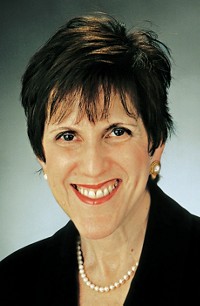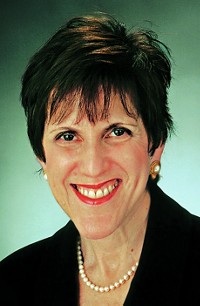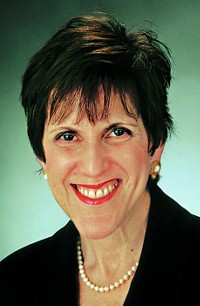Advertisement
Grab your lab coat. Let's get started
Welcome!
Welcome!
Create an account below to get 6 C&EN articles per month, receive newsletters and more - all free.
It seems this is your first time logging in online. Please enter the following information to continue.
As an ACS member you automatically get access to this site. All we need is few more details to create your reading experience.
Not you? Sign in with a different account.
Not you? Sign in with a different account.
ERROR 1
ERROR 1
ERROR 2
ERROR 2
ERROR 2
ERROR 2
ERROR 2
Password and Confirm password must match.
If you have an ACS member number, please enter it here so we can link this account to your membership. (optional)
ERROR 2
ACS values your privacy. By submitting your information, you are gaining access to C&EN and subscribing to our weekly newsletter. We use the information you provide to make your reading experience better, and we will never sell your data to third party members.
Environment
ACS: 2010 Highlights And 2011 Goals
by Madeleine Jacobs
March 7, 2011
| A version of this story appeared in
Volume 89, Issue 10

Each year around this time, I provide a brief update on ACS accomplishments and a look ahead. Last year presented enormous challenges for ACS members. As the U.S. economy pulled slowly out of the Great Recession, our members continued to struggle with ongoing job losses in nearly all major sectors of the chemistry enterprise. In 2010, ACS staff focused on helping all society members in their careers. Whether they were students seeking career advice, midcareer chemists looking for skills and leadership training, or highly experienced chemists who had lost their jobs, our members could find support through ACS programs and services.
Despite the anemic economy and the challenges it presented, the society ended 2010 with considerable accomplishments that were the result of a close and productive partnership among the ACS Board of Directors, other ACS governance volunteers, thousands of members in local sections and technical divisions, and ACS staff. You will find a list of 2010 Highlights of ACS Achievements at www.acs.org/acshighlights, organized around the society’s strategic goals. These are only selected accomplishments—it would be nearly impossible to document all the programs, products, and services delivered by our members, governance, and staff.
Among the accomplishments in 2010: ACS ended the year with more than 163,000 members, up from 161,780 in 2009, with substantial gains in underrepresented minorities, non-U.S. scientists, and young members; the society provided valued career services and webinars for our members; Chemical Abstracts Service broke records in database building and introduced many new features in SciFinder, which continued to expand around the world, especially in Asia; ACS Publications launched three new journals and C&EN Archives, which contains every issue of C&EN back to its inception in 1923; ACS Publications also began copublishing the Journal of Chemical Education with the Division of Chemical Education; the ACS website, www.acs.org, was enhanced with new functionalities, and all members who did not opt out joined the ACS Network (which ended the year with more than 173,000 members and chemical practitioners); ACS celebrated the 15th anniversary of the ACS Scholars Program, and the Development Office surpassed the program’s $500,000 fund-raising goal for that anniversary; media coverage of ACS technical journals and national meeting presentations reached millions worldwide; ACS communications efforts led to a growing Chemistry Ambassadors Program; and the Petroleum Research Fund awarded 131 grants totaling nearly $14 million.
ACS continued to make strides in sustainability. In 2010, ACS’s Donald F. & Mildred Topp Othmer Building in Washington, D.C., received Platinum certification in the Leadership in Energy & Environmental Design (LEED), Existing Buildings Program, sponsored by the U.S. Green Building Council. Platinum is the highest LEED certification that can be achieved. The ACS Othmer Building is one of nine buildings in the entire country to have received this type of certification. In addition, the society continued greening efforts from top to bottom with a new vegetative “green” roof atop the ACS Clifford & Kathryn Hach Building in Washington, which has Gold LEED certification. Only one in 10 office buildings in the Washington, D.C., area has these innovative surfaces, which save energy on heating and cooling, promote cleaner air, and reduce storm water runoff that can overburden city sewers.
Thanks to steady revenues and extremely vigilant expense management, ACS ended the year financially sound. The society finished 2010 with $463.7 million in revenues—the 17th consecutive year of revenue growth. The net from operations was $23.8 million, the seventh consecutive year with a positive net contribution. Unrestricted net assets, or reserves, ended at $130.5 million, an increase from $123.9 million in 2009. ACS received a “clean” opinion—the highest possible rating—from its independent auditors at the end of February. The financial statements and full audited results will be reported to the ACS Committee on Budget & Finance and Council at the ACS national meeting in Anaheim, Calif., later this month.
We are already well into 2011—the International Year of Chemistry. I am thrilled that chemists finally have our year to celebrate, but my elation is tempered by the continued sluggishness of the economy. Many sectors of the economy are improving, and the chemical industry is showing substantial profits, but we are still not seeing hiring of chemists at a fast enough pace. I have lived through five recessions in the chemical industry, and, until this last recession, we always experienced a reasonable recovery that involved adding back jobs that were lost in R&D. In this recession, everyone in the chemistry enterprise suffered, but unlike previous recessions, many people agree that we have experienced a paradigm shift and that jobs in R&D will not be substantially recovered in this country.
We will continue, therefore, to coordinate, prioritize, and enhance ACS services to help members succeed in this rapidly changing and globalizing workplace. Efforts will likely include offering an integrated package of prioritized career development services, disseminating enhanced market intelligence to members on workplace trends, improving member awareness of services, and exploring new efforts to facilitate chemistry-related job creation via small-business and start-up innovation.
As always, I am interested in hearing from you. What do you think ACS should be doing to help our members and the chemistry enterprise thrive? Please write me at m_jacobs@acs.org.
Views expressed on this page are those of the author and not necessarily those of ACS.





Join the conversation
Contact the reporter
Submit a Letter to the Editor for publication
Engage with us on Twitter